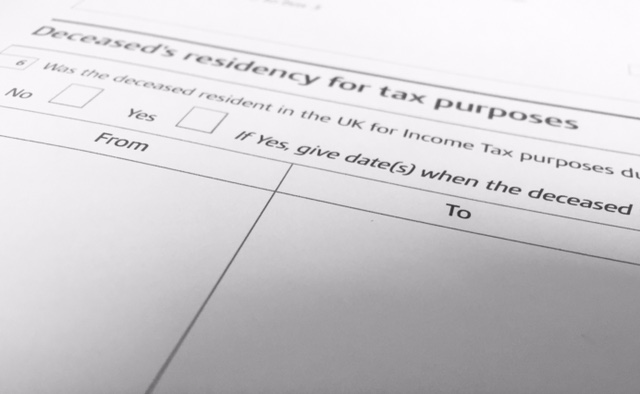How does HMRC know about gifts?
Dominic Thomas
Oct 2015 • 5 min read
How does HMRC know about gifts?
You may have been very generous with your wealth and given lots of money to your beneficiaries or charity prior to your death, but how on earth does HMRC or the Executors of your estate know to correctly offset these gifts (if appropriate) against your estate?
Probably the simple answer is that if it isn’t recorded, it would seem difficult to prove a gift was made. There are a variety of issues – the annual giving allowance (£3,000) does not need to be reported, but frankly it would seem wise to record the fact that the amount is actually gifted… all helping to demonstrate the accuracy of the story behind the information.
Here’s the link to take a look at form IHT403 – which is essentially a list of gifts and transfers that you have made within the last 7 years. In short, you really need to know the dates of the gift (within a tax year), the beneficiary, a description and the value of the gift.
Inheritance tax can get rather complicated with terms like “Pre Owned Assets” “Gifts with Reservation” “Lifetime Transfers” and more. So it’s rather important that the source of gifts is documented. To my mind it makes sense that you provide a brief written, dated document to the recipient of your gift and ideally your financial planner and possibly Accountant if you have one. Certainly retain a copy within your records – but remember passwords are all well and good when you are alive, but when you aren’t here to tell anyone what they are…
Gifts from Income
I don’t wish to drown you with detail, but it is possible to make gifts from income, provided that this is not to your detriment or deliberately reduce the value of your estate for IHT planning. If that sounds like an oxymoron… well, that’s the state of the tax system.
How do you demonstrate legitimate regular gifts from income? without a summary of your tax year income and expenditure I’d suggest that it will be fairly “difficult”. A business doesn’t have this problem – there are obvious accounts, or at least there should be, but as individuals perhaps the rule of thumb ought to be – think of yourself as a business – which means keep details carefully.
Taking a look at the last page of the form IHT403, you will observe that HMRC will request details of income and expenditure for the last 7 years. Could you provide this for yourself today? if not, how on earth will your Executors?…. hence one of the reasons we ask clients to update us with income and expenditure information every tax year… enabling us to help them build up a record – but also to do all the other sensible financial planning stuff – like helping reduce income taxes, checking that our assumptions about future lifestyle costs are broadly right and where it’s all going… and ideally to help them catch rather more of it than they otherwise would. So yes, those forms are rather important both whilst you are alive or deceased.
In practice, it is possible that HMRC might even wish to go even further back in time, perhaps as much as 14 tax years prior to death…. so my advice is to get your “ducks in a row” – which has several important positive by-products.
- Better budgeting
- Better financial planning
- Lower income taxes
- Reduced costs
- Longer-lasting wealth…
You heard it here – make an HMRC form your best financial planning tool!








